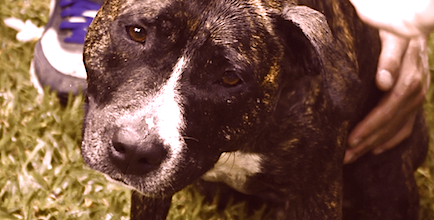Can Dogs Eat Bananas? Benefits and Risks Explained
Key Points: Bananas are a popular fruit consumed by humans across the globe due to their nutritional benefits, taste, and versatility. A commonly raised query among pet owners is regarding the safety and nutritional implications of feeding bananas to dogs. So can dogs eat bananas? Yes, bananas can be a safe and nutritious treat for…

- Dogs can eat bananas in moderation as a healthy treat.
- Rich in fiber, potassium, and vitamins, bananas support digestion and muscle function.
- Too many can cause digestive issues due to high sugar content.
Bananas are a popular fruit consumed by humans across the globe due to their nutritional benefits, taste, and versatility. A commonly raised query among pet owners is regarding the safety and nutritional implications of feeding bananas to dogs.
So can dogs eat bananas? Yes, bananas can be a safe and nutritious treat for dogs, when given in moderation and appropriately prepared. When introducing any new food to your pet, it is important to do so with caution.

Don’t leave your pet’s safety to chance
Sign up for Petful recall alerts today.

Composition of Bananas
Bananas are a rich source of several vitamins and minerals, including:
Vitamin C (Ascorbic Acid):
- Antioxidant Properties: Vitamin C is a potent antioxidant that helps protect the body against free radicals, which are unstable molecules that can damage cells. This can be especially beneficial for dogs exposed to various stressors or those undergoing intense physical activity.
- Collagen Production: Vitamin C is essential for the production of collagen, a primary protein found in the skin, cartilage, tendons, ligaments, and bones.
- Immune Support: It enhances the function of white blood cells and plays a role in various immune system functions, potentially helping dogs combat illnesses more effectively
- Wound Healing: The vitamin can accelerate the wound healing process because of its role in collagen production.
- Detoxification: Vitamin C aids in the detoxification of the liver.
Vitamin B6 (Pyridoxine):
- Protein Metabolism: Vitamin B6 is essential for the metabolism of proteins, making it vital for dogs that consume meat-based diets.
- Red Blood Cell Function: It plays a role in the production of heme, a component of hemoglobin in red blood cells, which transports oxygen throughout the body.
- Nervous System Function: Pyridoxine is involved in the synthesis of neurotransmitters, which facilitate communication between nerve cells.
- Hormonal Regulation: Vitamin B6 assists in regulating hormones, which can influence mood and body clock rhythms.
Potassium:
- Electrolyte Balance: Potassium is a crucial electrolyte that maintains cellular fluid balance, ensuring cells function correctly.
- Nerve Function: Potassium aids in nerve impulse transmission.
- Muscle Function: It plays a role in muscle contraction, making it essential for heart health and overall muscle function.
- Acid-Base Balance: Potassium helps maintain the body’s acid-base balance, ensuring optimal pH levels in the body.
Magnesium:
- Bone Health: Approximately 60% of the magnesium in a dog’s body is found in the bones, where it plays a role in bone structure.
- Enzyme Activity: Magnesium is a cofactor in more than 300 enzyme systems that regulate diverse biochemical reactions in the body, including protein synthesis, muscle and nerve function, and energy production.
- Muscle Relaxation: It works alongside calcium, where calcium aids muscle contraction, and magnesium aids muscle relaxation.
- Heart Health: Magnesium contributes to maintaining a steady heart rhythm and helps regulate blood pressure.
Fiber:
- Digestive Health: Fiber adds bulk to the stool, which can help regulate bowel movements, potentially aiding dogs with constipation or diarrhea.
- Weight Management: Dietary fiber can promote a feeling of fullness, which can help in weight management by reducing overall food intake.
- Colon Health: Fiber fermentation in the large intestine results in the production of short-chain fatty acids, which can have anti-inflammatory effects and promote colon health.
- Blood Sugar Regulation: Certain types of fiber can slow the absorption of sugar, which can help regulate blood sugar levels, especially beneficial for diabetic dogs.
Potential Benefits:
- Digestive Health: The dietary fiber present in bananas can aid in digestion. Fiber promotes bowel regularity, potentially helping dogs with mild constipation.
- Vitamin and Mineral Uptake: The minerals and vitamins present in bananas can supplement a dog’s diet, potentially benefiting their overall health. Considerations and Precautions
Considerations and Precautions:
- Sugar Content: Bananas are relatively high in sugars. Even though these are natural sugars, it’s essential to consider the potential for weight gain and the impact on dental health. Dogs with certain conditions, such as diabetes, may need their sugar intake closely monitored.
- Consistency: The soft, mushy nature of ripe bananas may pose a choking hazard, especially if given in large pieces. Therefore, it’s advised to offer bananas in small, bite-sized portions.
- Moderation: As with any treat or human food, it’s critical to offer bananas in moderation. They should complement the primary diet of the dog and not replace essential meals.
Can Dogs Be Allergic To Bananas?
Yes, dogs can be allergic to bananas, although it’s relatively rare. Just as with humans, dogs can develop allergies to almost any substance, including certain foods.
Signs of a Food Allergy in Dogs:
If a dog is allergic to bananas or any other food, they might display some of the following symptoms:
- Skin Irritations: This includes itching (often around the face, ears, paws, and anus), redness, and inflammation. They might also develop hives or a rash.
- Digestive Issues: This can range from mild stomach upset, vomiting, or diarrhea.
- Ear Infections: Some dogs with food allergies might develop recurrent ear infections
- Respiratory Symptoms: Although less common, some dogs might experience sneezing, coughing, or nasal discharge.
- Swelling: Swelling of the face, particularly the lips, eyes, or ears, might be a sign of an allergic reaction.
- Anaphylactic Shock: In severe cases, a dog might go into anaphylactic shock after consuming something they’re highly allergic to. This is a life-threatening emergency characterized by difficulty breathing, pale gums, a rapid heartbeat, and even collapse. If you suspect your dog is experiencing anaphylaxis, it’s crucial to seek emergency veterinary care immediately.
How to Determine the Allergy:
- Dietary Elimination Trial: If you suspect your dog has a food allergy, your veterinarian might recommend an elimination diet. This involves feeding your dog a limited ingredient diet to eliminate potential allergens and then slowly reintroducing potential allergenic foods one at a time to pinpoint the cause.
- Blood Tests: There are blood tests available that can screen for certain food allergies, although they might not be as reliable as the elimination diet.
- Skin Tests: Just as in humans, dogs can undergo intradermal skin tests to determine what they’re allergic to, although this is more commonly used for environmental allergies than food allergies.
If you suspect your dog has consumed bananas and is displaying signs of an allergic reaction, it’s essential to consult with your veterinarian. They can provide guidance on the best steps to take and whether any treatments are necessary. Remember always to introduce any new foods to your dog’s diet in small amounts and monitor for any adverse reactions.
So… Can Dogs Eat Bananas?
From a scientific perspective, bananas can be a safe and nutritious treat for dogs, when given in moderation and appropriately prepared (i.e., peeled and offered in small pieces). Individual dogs may have varying tolerance levels, and it’s always a prudent practice to observe any new food’s introduction for any adverse reactions. If in doubt, it’s beneficial to consult with a veterinarian to discuss any dietary changes or introductions.
How Much Banana Can Dogs Eat?
The appropriate amount of banana for a dog depends on the dog’s size, overall health, and dietary needs. Here’s a general guideline for feeding bananas to dogs:
- Toy or Teacup Breeds up to 5 lbs or 2.3 kg (e.g., Chihuahua, Pomeranian):
- Small Dogs 5-20 lbs or 2.3-9 kg (e.g., Dachshund, Dachshund): A few slices or a small piece equivalent to 1/8 of a banana is sufficient.
- Medium Dogs 20-60 lbs or 9-27 kg (e.g., Beagle, Border Collie): They can have up to ¼ of a banana.
- Large Dogs 60-100 lbs or 27-45 kg (e.g., Labrador, Golden Retriever): They can eat a ½ of a banana, though it’s often best to stick to ¼ of a banana to avoid excessive sugar intake.
- Giant Dogs 100+ lbs or 45+ kg (e.g., Great Dane, Mastiff): They can safely consume a whole banana, but it’s crucial to remember that even for larger breeds, bananas should only be an occasional treat.
Can Dogs Eat Banana Peels?
From a scientific perspective, while banana peels aren’t inherently toxic to dogs, there are several concerns associated with feeding them to canines:
Digestibility Issues:
Banana peels are fibrous and can be difficult for dogs to digest. Ingesting banana peels may lead to gastrointestinal issues or complications, such as intestinal blockages, especially in smaller breeds.
- Choking Hazard: Depending on the size and the manner in which it’s given, a banana peel can pose a choking risk.
- Pesticides and Contaminants: Bananas, like many other fruits, may have residues of pesticides or other contaminants on their skin. Even if washed, traces might remain, which could be harmful to dogs.
- Potential Gastrointestinal Upset: Some dogs might experience gastrointestinal discomfort or diarrhea after consuming foods or items that aren’t typically part of their diet, including banana peels.
Given these concerns, it’s advisable not to feed banana peels to dogs. If a dog ingests a banana peel accidentally, monitoring for any signs of gastrointestinal distress or obstruction is essential. If there are concerns or if the dog shows signs of distress, consulting a veterinarian is crucial.
Can Dogs Eat Banana Bread?
Feeding banana bread to dogs requires careful consideration of the ingredients and potential risks. While the primary ingredient, bananas, is generally safe for dogs in moderation, many other components of banana bread can be problematic. Here are some considerations:
- Added Sugars: Banana bread often contains added sugars, which can contribute to obesity and dental problems in dogs. Moreover, excessive sugars aren’t ideal for a dog’s overall health.
- Nuts: Some banana bread recipes include nuts, like walnuts. While many nuts are not toxic to dogs, some, such as macadamia nuts, are. Even non-toxic nuts can pose a choking hazard or case gastrointestinal upset.
- Raisins or Currants: If banana bread contains raisins or currants, it should be avoided entirely. Raisins and currants can be toxic to dogs, leading to kidney failure in some cases.
- Xylitol: This is a sugar substitute often found in low-calorie or diabetic-friendly recipes. Xylitol is highly toxic to dogs, even in small amounts, leading to rapid insulin release, hypoglycemia (low blood sugar), seizures, liver failure, or even death.
- Butter and Fats: These can contribute to pancreatitis in dogs if consumed in large amounts. Pancreatitis is inflammation of the pancreas and can be life-threatening.
- Spices: Some spices used in baking, like nutmeg, can be harmful to dogs. Nutmeg contains myristicin, which can cause symptoms like hallucinations, increased heart rate, and seizures in dogs.
While a tiny piece of plain banana bread might not harm most dogs, given the potential risks associated with certain ingredients, it’s best to exercise caution. Always check the ingredient list before sharing any human food with pets. If in doubt, consider offering your dog a plain piece of banana instead, or consult with a veterinarian regarding safe treats and dietary recommendations. If a dog has consumed a significant amount of banana bread, or any containing harmful ingredients, immediately seek veterinary attention.
Can Dogs Eat Banana Chips?
Dogs can eat banana chips in moderation, but there are several considerations to keep in mind:
- Processing and Additives: Many commercially available banana chips are fried and might contain added sugars, preservatives, or artificial flavors. These can add unnecessary calories and aren’t ideal for a dog’s health.
- Caloric Intake: Banana chips, especially if fried, can be calorie-dense. Frequent or large servings can contribute to weight gain.
- Digestibility: Banana chips are dehydrated and harder than fresh bananas. There’s a potential for them to cause digestive upset in some dogs, especially if consumed in large quantities.
- Choking Hazard: Due to their dry and sometimes hard consistency, there’s a risk, especially for smaller dogs, of choking on banana chips.
- Nutritional Value: While fresh bananas offer certain vitamins and minerals, the dehydration process for making banana chips might reduce their nutritional content. Moreover, any added ingredients can detract from any potential health benefits.
If you decide to offer banana chips to your dog, it’s best to choose those without added sugars, preservatives, or artificial flavors. Always introduce any new treat or food gradually and in small quantities to monitor for any adverse reactions. Offering fresh banana in moderation might be a healthier alternative. As with any treat, moderation is key, and it’s always a good idea to consult with your veterinarian regarding any significant dietary changes or introductions.
Can Dogs Eat Banana Pudding?
Banana pudding, a popular dessert, consists of layers of sweet vanilla-flavored custard, cookies (often vanilla wafers), and slices of fresh bananas. While the primary ingredient, bananas, is safe for dogs in moderation, the overall composition of banana pudding may not be ideal for canines for several reasons:
- Sugar Content: Banana pudding often contains a high amount of sugar, both from the custard and the cookies. Excessive sugar intake is not recommended for dogs as it can lead to weight gain, dental issues, and other health concerns.
- Dairy: The custard in banana pudding is dairy-based. Many dogs are lactose intolerant to some degree, which means they might experience gastrointestinal upset, including diarrhea and gas, after consuming dairy products.
- Cookies and Additives: The vanilla wafers or other cookies used in banana pudding can be high in sugar and may contain ingredients that aren’t ideal for dogs. Additionally, some cookies may have additives, preservatives, or artificial flavors.
- Consistency and Texture: The soft, mushy nature of banana pudding might not pose a choking hazard, but it’s quite different from a dog’s regular food. This sudden change in texture and composition might lead to digestive issues in some dogs.
- Potential Ingredients of Concern: Depending on the recipe, some banana puddings might contain ingredients that are problematic for dogs, such as chocolate or certain artificial sweeteners. Xylitol, a sugar substitute found in some products, is particularly toxic to dogs.
While a small amount of banana pudding might not immediately harm most dogs, it’s not an ideal treat due to its sugar content, dairy, and potential additives. If you wish to give your dog a banana-flavored treat, a small slice of plain banana would be a healthier choice. Always introduce any new food to your dog in moderation and monitor for adverse reactions. If in doubt, it’s best to consult with a veterinarian.
Frequently Asked Questions (FAQ)
How much banana can I give my dog?
Small dogs can have a few small slices, while larger dogs can eat up to half a banana as an occasional treat. Since bananas are high in natural sugar, excessive amounts can lead to weight gain or digestive upset.
Can dogs be allergic to bananas?
Yes, though rare, some dogs may be allergic to bananas and could experience symptoms like itching, swelling, or digestive issues. If you notice any signs of an allergic reaction after feeding banana, stop giving it and consult your veterinarian.
Can dogs eat banana peels?
No, banana peels are not toxic, but they are tough and difficult to digest, which can lead to choking or intestinal blockage. If your dog accidentally eats a banana peel, monitor them for vomiting or signs of digestive discomfort.
Will bananas settle my dog’s stomach?
Yes, bananas contain fiber and pectin, which can help firm up stool and soothe mild digestive upset. However, they should only be given in moderation, as too much banana can cause constipation or bloating.
Curious about what other foods dogs can eat? Check out these related articles below:







